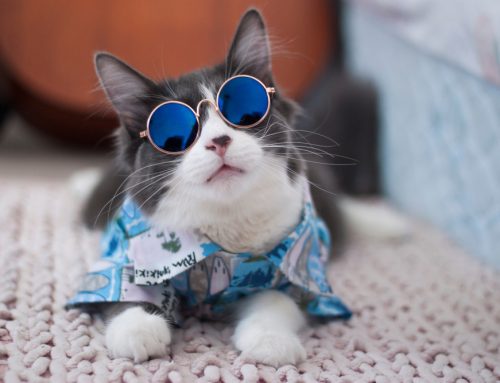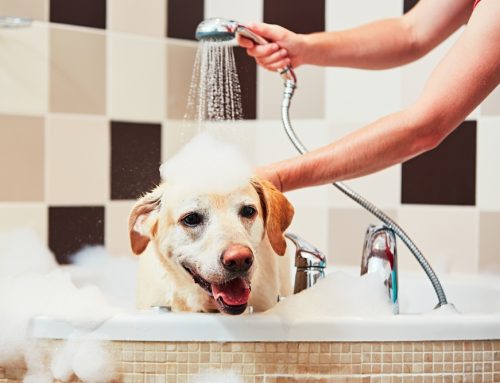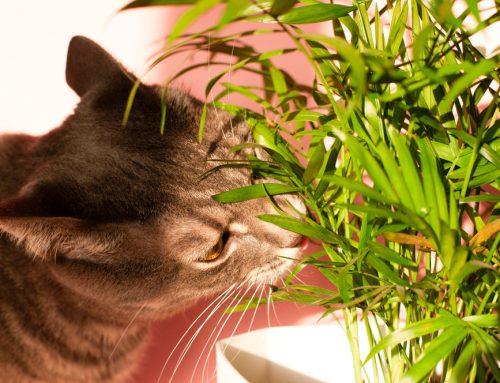Cats are fastidious creatures, and you would think they would always use their litter box, but pet owners commonly complain about their cat peeing outside their box. Feline inappropriate elimination has a multitude of causes, and finding the instigating factor can be challenging. However, you can encourage your cat to do their business in the right spot. Here are five reasons your cat may be peeing outside their box, and how to get them to use the box again.
#1: Your cat’s litter box is not clean enough for their standards
Cats are notoriously finicky creatures, and like most people, they do not want to use a dirty bathroom. Practice good litter box hygiene by keeping your cat’s box clean and fresh. Ideally, scoop the box twice daily, and sanitize weekly with an unscented disinfectant. Strongly scented soaps and disinfectant can be a turn-off for your sensitive cat, and they may ultimately avoid a clean box, as well.
#2: Your cat doesn’t like the litter in their box
A cat in pain may choose a soft substrate to eliminate, which may end up being your down duvet or freshly washed sweater, but once the underlying medical issue is treated, you can lure your pet back to the box with the proper litter. In general, cats prefer unscented clumping litter and litter with fine granules, but your cat may have their own idea of perfect litter. If your cat is still avoiding the box after other issues have been treated or ruled out, add additional litter boxes with different litter types to determine your pet’s preference.
#3: Your cat’s litter box is placed in a poor location
Location, location, location—the right spot is essential for encouraging your cat to use their litter box. Noisy or high-traffic areas are not ideal locations, so place the box away from loud appliances and family gathering areas. However, avoid shoving the box in a dark corner out of sight—and smell. Cats do not like feeling trapped, so if their litter box is crammed into a tight spot, they may feel too vulnerable, and seek out a safer location. Also, encourage box use by choosing a location that allows for multiple entrances and exits.
#4: You don’t have enough litter boxes to provide clean accommodations for all your cats
Sharing a bathroom leaves a lot to be desired, and if you have multiple household cats, they will appreciate their own litter boxes. The rule of thumb with litter box numbers is one box per cat, plus one. So, if you have three cats, you need at least four boxes spaced out throughout your home.
#5: Your cat may have an underlying medical problem

If improved litter box hygiene and habits don’t encourage your cat to urinate in their litter box again, you need to rule out a medical problem. Inappropriate elimination could signal several serious health issues, such as:
- Urinary tract infection
- Bladder or kidney stones
- Cystitis
- Osteoarthritis
- Kidney disease
- Diabetes
By scheduling a comprehensive physical exam and diagnostic workup, our Hearthstone Veterinary Hospital team can get to the bottom of your cat’s litter box problems. During your pet’s appointment, we may recommend the following tests:
- Complete blood count — A complete blood count (CBC) provides information about your cat’s hydration status, along with their red blood cell, white blood cell, and platelet numbers. These numbers let us know if your pet is anemic, fighting off infection or inflammation, or has a clotting issue, which can all indicate an underlying disease process.
- Blood chemistry profile — A chemistry profile is especially important for evaluating organ function, and can help diagnose kidney disease or diabetes. The profile also gives us information about electrolyte levels in your pet’s blood.
- Urinalysis — A urinalysis can offer information about your cat’s kidney function, and for diagnosing a urinary tract infection, urinary crystals, or inflammation.
- X-rays — X-rays can tell us if your cat has a bladder or kidney stone, or if they have osteoarthritis in their spine or hips that makes using a litter box uncomfortable.
Once we determine the underlying cause of your cat’s elimination issues, we can treat the problem and get them back to their box.
Is your feline friend avoiding their litter box? If so, they may have a health issue that requires veterinary attention. Give our Hearthstone Veterinary Hospital team a call to schedule an appointment.







Leave A Comment